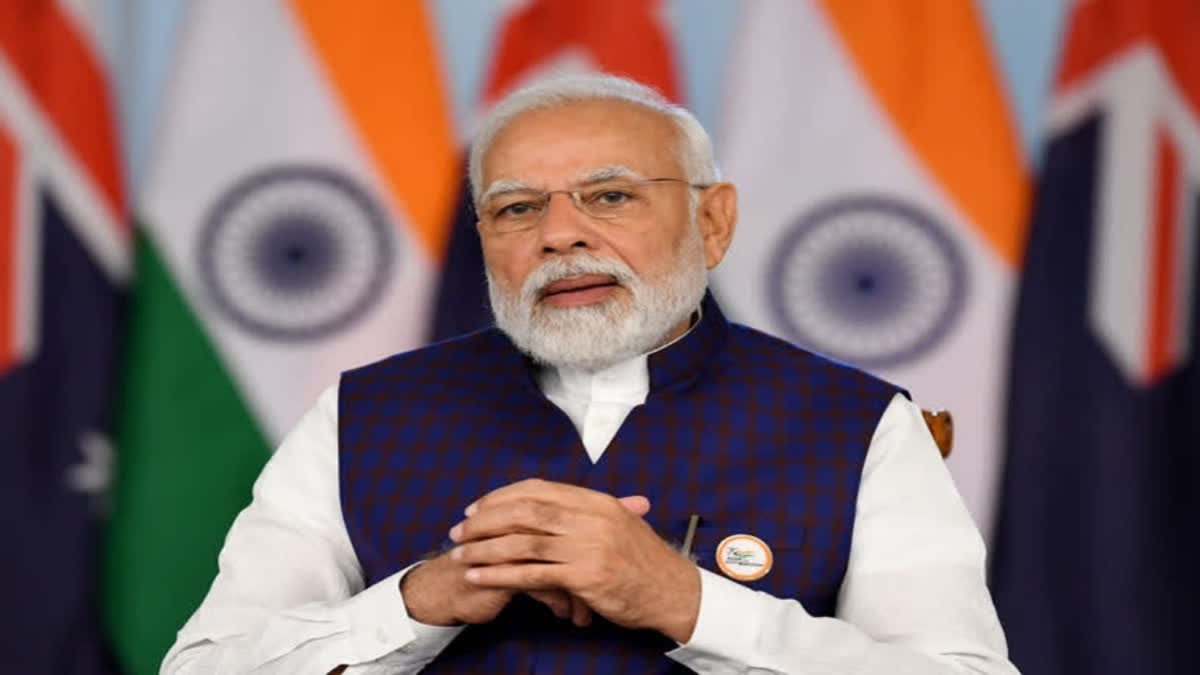New Delhi:Prime Minister Narendra Modi will be on a visit to Hiroshima for the G7 leaders’ summit on Friday, May 20. The main agenda under Japan’s G7 Presidency include Ukraine, nuclear disarmament and non-proliferation, Indo-Pacific, economic resilience, and economic security.
Foreign policy expert and former ambassador Anil Trigunayat told ETV Bharat that the G7 meeting being held in Hiroshima is also a grim reminder of the horrors that the nuclear catastrophe caused in 1945 and that the threat of a nuclear conflagration is alive in today's conflictual context in the Eurasian war.
The visit of the Prime Minister assumes significance as India is one of the few countries which have not signed the Non-Proliferation Treaty. PM Modi’s visit to Hiroshima is also the first such visit by an Indian Prime Minister after India conducted nuclear tests in Pokhran in May 1974. The tests resulted in a variety of sanctions against India by a number of major countries including Japan and the U.S.
The last Indian Prime Minister to visit Hiroshima was Jawaharlal Nehru in 1957 after the city suffered the atomic bomb attack in 1945. Commenting on the significance, ex-ambassador Trigunayat said, "What is more important is that India has virtually become an integral part of G7+1 format. Our relations have individually and independently continued to grow. PM Kishida during his recent visit to India had personally extended the invite to PM Modi for the G7 Summit".
"The fact that the meeting is being held in Hiroshima is also a grim reminder of the horrors that nuclear catastrophe caused in 1945 and threat of a nuclear conflagration is pretty alive in today's conflictual context in the Eurasian war," he said. Prime Minister Narendra Modi will reach Hiroshima, Japan on May 19 and will attend the G-7 Summit under the Japanese Presidency.
During the Summit, Prime Minister will speak at G-7 sessions with partner countries, on subjects such as peace, stability and prosperity of a sustainable planet; food, fertilizer, and energy security; health; gender equality; climate change and environment; resilient infrastructure; and development cooperation. Prime Minister will hold a bilateral meeting with Prime Minister Kishida Fumio. He will also hold bilateral meetings with some of the other participating leaders on the sidelines of the Summit.
Meanwhile, Australia will not conduct Quad leaders meeting next week after US President Biden cancelled his visit to Australia. The Australian Prime Minister Anthony Albanese on Wednesday said that PM Modi will visit Sydney next week on May 22-24. The Summit provides an opportunity for the Leaders to exchange views about developments in the Indo-Pacific region and advance their vision for a free, open and inclusive Indo-Pacific.
During his visit, Prime Minister Modi will have a bilateral meeting with Prime Minister Albanese on May 24. He will also interact with Australian CEOs and business leaders, and address the Indian diaspora at a community event in Sydney on May 23. Modi has attended three G7 summits in the past – twice in-person, in Biarritz, France (2019) and Elmau, Germany (2022), and once virtually (Cornwall, UK-2021).
Also read: PM Modi to embark on a three-nation tour to Japan, Papua New Guinea and Australia
